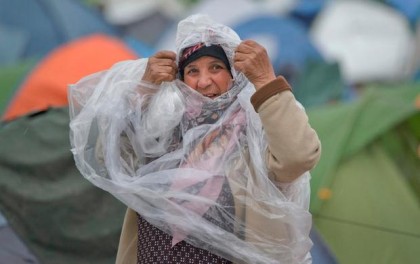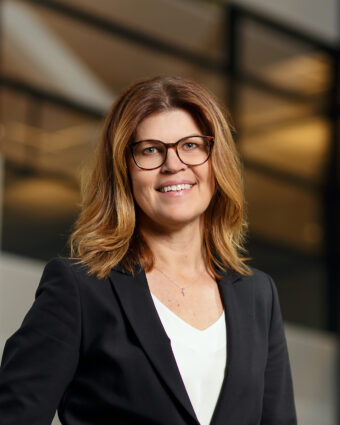
IDOMENI, Greece (AP) — While European leaders struggled Monday for a unified approach to the refugee crisis, tens of thousands of people affected by their decisions were left stranded in Greece, with countries along the migrant trail gradually tightening border controls to staunch the northward flood.The restrictions along what has become known as the western Balkan route has left about 13,000-14,000 people stuck on the Greek-Macedonian border near the village of Idomeni, and more than 36,000 people in the financially stricken country, reports Associated Press.
The European Union held a summit meeting Monday with Turkey to try to halt the flow of thousands of refugees and migrants coming from the Turkish coast to nearby Greek islands, whose proximity has made the country the preferred route into Europe.But while European leaders haggled in Brussels, a punishing thunderstorm turned much of the overcrowded Idomeni camp into a sea of mud. Conditions are deteriorating in the camp, which was set up only for about 2,000 people, and crews are struggling to maintain hygiene, reports AP..
More people have arrived each day, and hundreds of small tents from aid organizations have sprung up in and around the camp, spilling into fields and onto nearby railway tracks and a train station platform, with nowhere to go.
More often control
Until a few months ago, Idomeni was a transit camp where people would stay for a couple of days before continuing northward. But Macedonia began tightening the controls late last year, saying other countries farther up the line — Serbia, Croatia and Austria — were doing the same. First the route was closed to people considered economic migrants, with only those from countries affected by war — Syria, Iraq and Afghanistan — allowed to cross. Then, in November, the Afghans were stopped, too. Ever more stringent restrictions have appeared since then. In recent days, Macedonia began denying entry to Syrians and Iraqis whose registration papers from the Greek authorities had been signed in black ink, rather than blue. On Sunday, Macedonia allowed in only people from cities deemed to have been affected by war, meaning those from Aleppo, for example, could cross, but not those from Damascus, the Syrian capital. The restrictions have led to occasional protests by frustrated refugees who stage sit-down protests on the railway tracks, blocking freight trains.
Crying for Mama Merkel
Even though there were no trains Monday, dozens of men, women and children sat on the tracks holding banners, waving a German flag and chanting, «Germany, Germany,» and «Mama Merkel,» referring to German Chancellor Angela Merkel, whom they consider sensitive to their plight.
«We are protesting because of the Macedonians and because we know all of their imports are coming from the sea on these railway tracks,» said Syrian Abdul Rahman, «and I, for one, if the train comes here, I will die on these railway tracks if (the Macedonians) don’t open the gate at the border, according to Associated Press. Macedonia has said it can only take in as many people from Greece as Serbia will allow to enter from Macedonia. Serbia has severely restricted the flow in recent days. This has led to about 1,500 people being stuck on the Macedonian-Serbian border — 630 Afghans and the rest Syrians and Iraqis. The largest bottleneck in Europe is in Idomeni, where those in the growing tent city say they had no choice but to flee their homes and seek the safety of Europe, with the dream of reconstructing their lives.
-We were stuck with a decision,» said Hala Haddad, a 19-year-old English literature student from Syria’s battered city of Homs, traveling with her parents, older sister and younger brother. «Would you rather stay in your home and die, or leave without a home? We chose to live, said Haddad to AP`s reporter in Idomeni.



